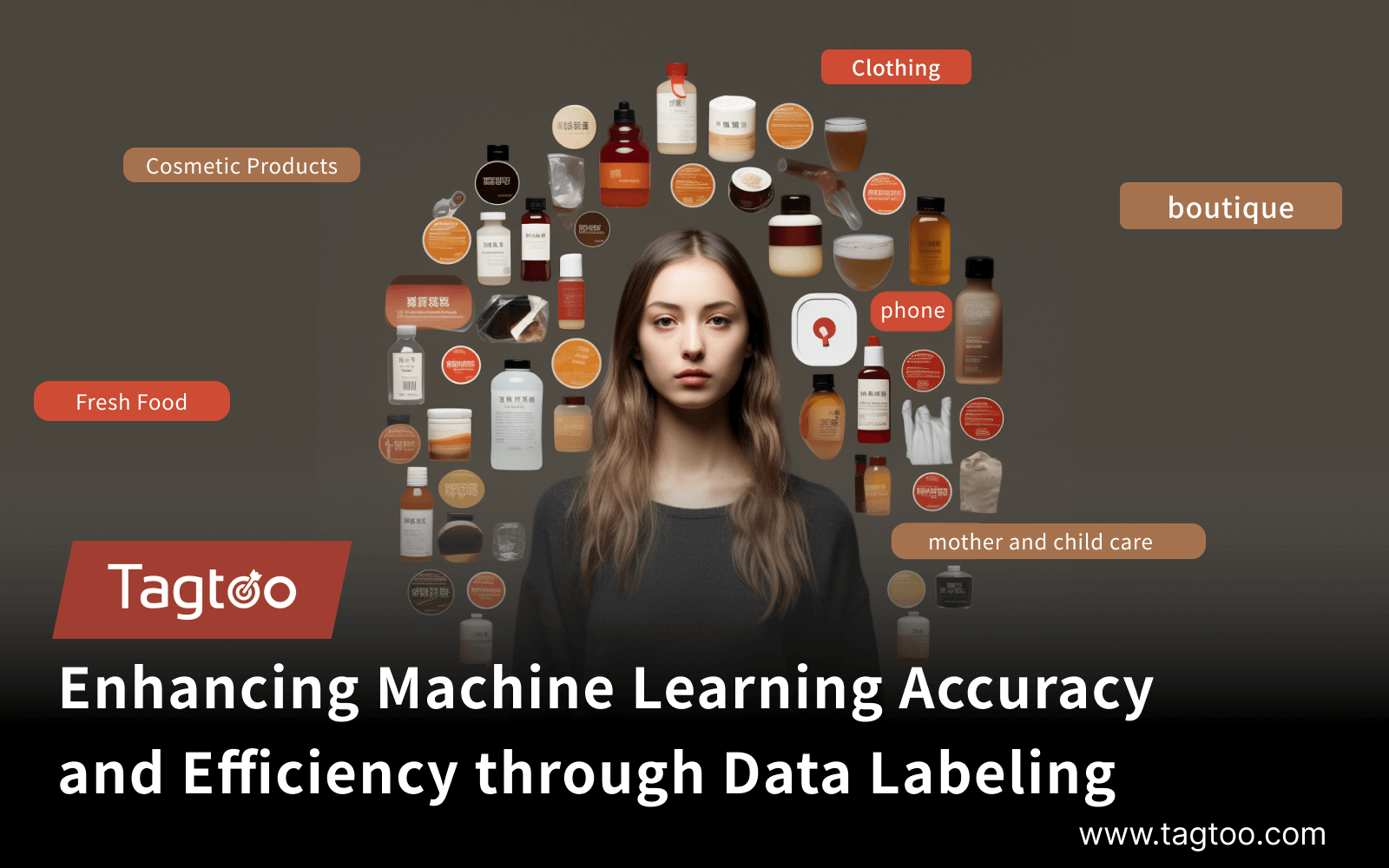In the rapidly evolving field of technology, where machine learning algorithms play a crucial role in driving business growth, the importance of data labeling cannot be overstated. Data labeling, a process of assigning predefined tags or annotations to data for training machine learning models, holds the key to unlocking the true potential of AI-driven solutions.
While not all machine learning methods require labeled data, data labeling plays a vital role, especially in enhancing predictive accuracy. It contributes to the continuous optimization and improvement of machine learning accuracy, particularly in the context of supervised machine learning.
You may be interested >> A Guide to Behavioral Targeting At its core, data labeling serves as a bridge between raw data and the algorithms that make sense of it. It involves expert annotators, leveraging their domain knowledge and expertise, to meticulously tag and categorize data points, ensuring that algorithms can grasp and interpret the information effectively. In order to guarantee accuracy and precision, reputable data labeling companies or platforms implement rigorous quality control measures and employ highly trained annotators. The power of labeled data lies in its ability to enhance a wide range of machine learning applications. From image recognition and sentiment analysis to content categorization and user profiling, labeled data forms the backbone of these processes. By automating content sorting, marketers can streamline their operations and gain valuable insights into emerging trends. Furthermore, personalized experiences can be delivered to customers, enabling businesses to forge deeper connections and drive customer loyalty. With data-driven decisions at their fingertips, advertisers and marketers can optimize their campaigns for maximum impact. While both labeled and unlabeled data have their place in machine learning, it is essential to understand the distinction between the two. Labeled data is a key ingredient in supervised learning, where algorithms learn from a well-defined dataset with predefined labels. This type of data is more challenging to acquire and store, as it requires human effort and is often cost-intensive. However, the insights derived from labeled data are invaluable, enabling businesses to take informed actions based on the patterns and predictions generated by machine learning models. On the other hand, unlabeled data finds its utility in unsupervised learning, where algorithms analyze data without predefined labels. Although this type of data is easier to obtain, it lacks the contextual information that labeled data provides. Nonetheless, unsupervised learning plays a vital role in discovering hidden patterns, clustering data, and uncovering new insights, complementing the knowledge gained from labeled data. You may be interested >> How to maximize the value generated by brand data? Data labeling brings forth an array of benefits for users, teams, and companies alike, revolutionizing the way machine learning models are trained and deployed. Firstly, accurate data labeling ensures the quality assurance of machine learning algorithms, allowing models to train effectively and generate the expected output. By providing the necessary context and structure to the data, labeled datasets empower algorithms to make precise predictions and informed decisions. Moreover, data labeling enhances the usability of data variables within a model. Through thoughtful classification and reclassification of variables, data can be optimized for consumption by machine learning algorithms. For instance, transforming a categorical variable into a binary variable streamlines the modeling process, reducing the complexity and enabling the inclusion of control variables. By aggregating data in this manner, models become more efficient and can generate more actionable insights. Whether you are building computer vision models that require bounding boxes around objects or NLP models for sentiment classification, the utilization of high-quality data is paramount. Data labeling serves as the bedrock for creating reliable and accurate models, paving the way for breakthroughs in computer vision, natural language processing, and a multitude of other AI-driven applications. Training Machine Learning Models: Data labeling is essential for training machine learning models used in various marketing applications. For example, in user recognition for ad targeting, data labeling helps identify and annotate user’s features. In natural language processing for sentiment analysis, data labeling involves labeling text data with sentiment categories (positive, negative, neutral). Content Categorization and Classification: Data labeling assists in categorizing and classifying content, such as articles, product descriptions, or social media posts. Marketers can use labeled data to automate content sorting, analyze trends, and deliver personalized content based on specific categories or topics. User Profiling and Personalization: Labeled data on user behaviors, preferences, and demographics can be used to create user profiles and segments. Marketers can leverage this information to deliver targeted advertisements, product recommendations, or personalized experiences tailored to specific user groups. You may be interested >> How Deep Learning for Buying Behavior Prediction In conclusion, data labeling has become an integral part of modern marketing strategies. From training machine learning models to content categorization and user profiling, data labeling empowers marketers to leverage the full potential of their data. By embracing data labeling, businesses can make data-driven decisions, stay ahead of the curve, and create meaningful connections with their customers in today's data-driven world.What is Data Labeling?
Empowering Machine Learning Applications
Labeled Data vs Unlabeled Data
Benefits of Data Labeling
The Utilizes of Data Labeling in Marketing
The Verdict
